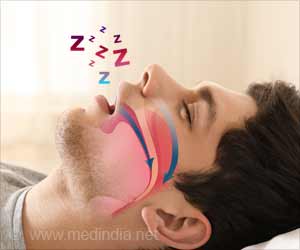Discover why you feel sleepy after lunch and how to combat the mid-afternoon slump. Explore the causes and solutions to boost your post-lunch productivity.
- Post-lunch sleepiness, also known as postprandial somnolence, is a common phenomenon influenced by factors like meal composition, circadian rhythm, and sleep quality
- Certain foods, such as high-fat, high-carb, and tryptophan-rich options, can contribute to daytime tiredness
- Practical tips to avoid feeling sleepy after lunch include eating a balanced meal, staying hydrated, mindful eating, taking short walks, managing stress, prioritizing nighttime sleep, and moderating caffeine intake
What is Postprandial Somnolence?
Postprandial somnolence, often known as the 'post-lunch dip' or, more colloquially, a "food coma," is the sense of tiredness that typically follows a meal. While it is a common occurrence, the exact causes of this phenomenon remain unknown. Several factors, including shifts in cellular proteins, hormones, blood flow, brain chemicals, inflammation, and your body's internal clock, influence your energy levels after a meal. The composition of your food is an important consideration (1✔ ✔Trusted SourceMeal composition and its effect on postprandial sleepiness
Go to source). Larger meals, as well as those high in fat, carbohydrates, or calories, are more likely to make you sleepy.
Foods that Cause Daytime Sleepiness
While additional research is needed to fully understand the association between food and daytime sleepiness, certain foods have been linked to drowsiness:High-fat foods:
High-fat foods are rich and heavy, making them difficult to digest and increasing the probability of post-meal weariness (2✔ ✔Trusted Source
Nutritional Elements in Sleep
Go to source).High-carbohydrate meals:
High-carbohydrate meals can contribute to postprandial weariness (3✔ ✔Trusted Source
Association between Macronutrient Intake and Excessive Daytime Sleepiness: An Iso-Caloric Substitution Analysis from the North West Adelaide Health Study
Go to source).Foods high in tryptophan:
Tryptophan is an amino acid that is believed to promote sleep in the brain. Tryptophan is found in foods such as turkey, milk, bananas, oats, and chocolate.Nuts:
Walnuts, pistachios, and other nuts contain a lot of melatonin, which can make you sleepy.
Lifestyle Factors that Contribute to Daytime Sleepiness
Aside from the nutritional value of your meal, several other variables can contribute to sleepiness after eating:Circadian Rhythm:
The circadian rhythm of your body affects your energy levels throughout the day. The post-lunch dip is a natural element of this cycle, which can differ depending on whether you prefer to exercise in the morning or the evening.Sleep disruption:
Inadequate or poor-quality sleep at night can exacerbate daytime tiredness. This can be caused by conditions such as obstructive sleep apnea or insomnia.Other medical conditions:
Unbalanced blood sugar levels, anemia, hypothyroidism, low blood pressure, and drugs with sleepiness as a side effect can all produce weariness after eating.
How to Avoid Feeling Sleep After Lunch?
Now that you have learned about the potential reasons for postprandial somnolence, here are some pointers to help you stay alert and focused at work after lunch (4✔ ✔Trusted SourceHere’s Why You Get Sleepy After Eating
Go to source).
Eat a Balanced Meal
Eating a well-balanced meal is essential for avoiding the energy slump that commonly follows lunch. Include lean protein sources such as chicken, tofu, or lentils. Protein helps to keep blood sugar levels constant and keeps you feeling fuller for longer. Choose whole grains, brown rice, or quinoa as complex carbs. These gradually release energy, enabling persistent alertness. Avocados, almonds, and olive oil are all good sources of healthful fats. These fats can deliver a sense of contentment while also maintaining your energy levels. Include plenty of fruits and veggies in your diet. They are high in vitamins, minerals, and fiber, all of which promote general health.
Drink Plenty of Water
Feelings of weariness and sluggishness can be exacerbated by dehydration. Make it a practice to drink water throughout the day, particularly before and after meals. Herbal teas or infused water with citrus or cucumber slices might be refreshing options. To maintain your energy levels, drink at least eight glasses of water every day.
Eat Mindfully
Eating with care or mindfulness entails paying attention to what and how you eat. This method can aid digestion and minimize overeating, which can result in post-lunch tiredness. Take the time to appreciate your meal's flavors, textures, and fragrances. Eat slowly and completely. Keep portion quantities in mind. Avoid heaping more food on your plate than you need. Pay attention to your body's hunger signs.
Take a Short Walk After Meals
A short walk after lunch can help counteract post-lunch tiredness. Walking improves blood circulation, wakes up the body, and increases general alertness. Try to take a 10-15 minute walk about your workplace, either inside or outside if possible. This break can also help with mental clarity and stress reduction.
Stress Management Techniques
Post-lunch tiredness might be exacerbated by stress. Incorporate stress-reduction techniques such as deep breathing exercises, meditation, or progressive muscle relaxation into your everyday routine.
Get enough sleep at night
One of the most effective methods to avoid daytime tiredness is to get enough restorative sleep at night. Set a consistent sleep pattern and aim for 7-9 hours of quality sleep per night.
Limit Caffeine Intake
If you have trouble staying awake after lunch, a small dose of coffee can deliver a much-needed energy boost. However, keep the timing in mind. Caffeine use too late in the day can disrupt your nocturnal sleep.
References:
- Meal composition and its effect on postprandial sleepiness - (https://pubmed.ncbi.nlm.nih.gov/9284488/)
- Nutritional Elements in Sleep - (https://pubmed.ncbi.nlm.nih.gov/36694494/)
- Association between Macronutrient Intake and Excessive Daytime Sleepiness: An Iso-Caloric Substitution Analysis from the North West Adelaide Health Study - (https://pubmed.ncbi.nlm.nih.gov/31590356/)
- Here’s Why You Get Sleepy After Eating - (https://www.sleepfoundation.org/nutrition/why-do-i-get-sleepy-after-eating)
Source-Medindia










